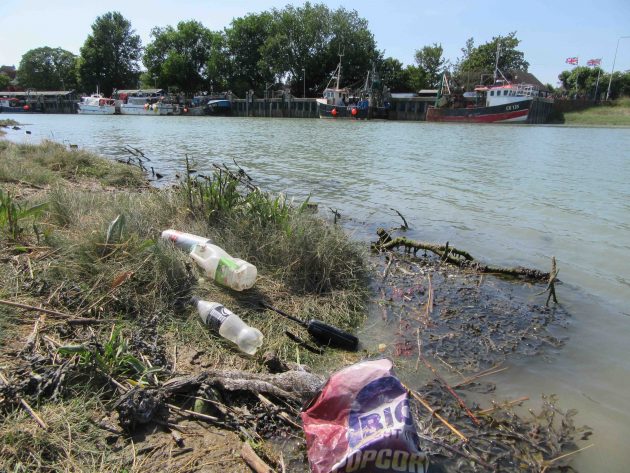It is regrettable that last week’s article “One Less Threat to Fishermen” refers to the possible creation of a Marine Conservation Zone (MCZ) to Rye Bay as a threat, as if this were inevitably a bad thing best avoided. The fact is that fishing stocks to British waters have been depleted by at least 95% since the pre-industrial era. In pre-medieval times, the sea beds of the North Sea and English Channel would have been covered in oyster reefs, making the water clear rather than soupy grey. Marine life was then abundant in a way we can barely imagine. This would have included the grey whale, now extinct in our waters. Overfishing has long been a problem but there are now new threats – and I mean this in the sense it should be used.
Last week’s article refers to plastic being caught in fishermen’s nets, as if that were the only issue with it. Plastic causes huge damage to marine ecosystems, as fish, marine mammals and birds die due to false satiation, amongst other things. As I can attest from having participated in beach surveys, the wider fishing industry itself contributes in no small measure to the pollution of our seas with plastic and is currently part of the problem not the solution.
Then there is the big taboo subject of climate change – we’ve just had the hottest May on record, people – which causes sea acidification and water warming, which combined puts huge stress on marine ecosystems.
The article then goes on to describe EU quotas as a problem, as if removing quotas will hail a new golden era for the fishing industry: now we can catch ALL the fish, hurrah! Can I just point out – and this would be obvious to a five-year-old – that without fish there are no fishermen. The problem with fishing has only ever been one of home grown mismanagement, putting short term greed ahead of long term prosperity. The only threats our oceans face have been man made. I don’t blame our fishermen, their job is tough and dangerous, but I do blame our society for not taking greater care of our seas.
Currently only 3.66% of all seas are protected – it is not enough. I make a plea to not just protect but to restore and enhance our marine habitat, for the sake of future generations including those of fishermen. Support the campaign to create 41 new MCZs (and this, for now at least, doesn’t include Rye Bay!).
Photo: Dominic Manning




In the past few decades humanity at last has come to realise that marine life is finite and that we cannot continue to extract the vast number of fish and other life that we did in the past. Because the sea is a common resource it is necessary to regulate activity: without it there would be a free-for-all for the dwindling stocks.
The cod fishery off the coast of Newfoundland, Canada (Grand Banks) should be a warning to all. Proper quotas were not put in place and as a result the catch in 1992 was only 1% of that in the 1980s. A monitorium was imposed resulting in the loss of 38,000 jobs. 25 yrs later stocks have recovered to 25% of 1980s levels.
The quotas may be unpopular but how else can stocks be managed effectively?